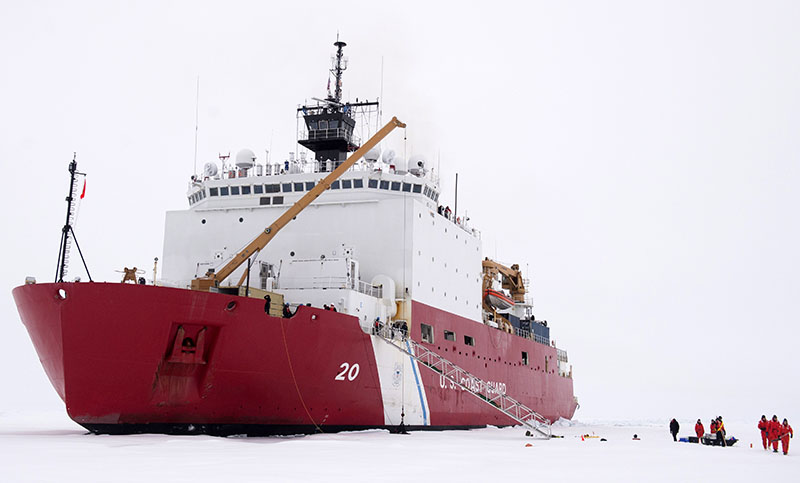The Coast Guard needs at least $2 billion a year for acquisition and a 5% annualized increase in operations and maintenance to get ahead of its backlog, Commandant Adm. Paul Zukunft told members of Congress Tuesday.
“We’re delivering ships on time and on budget,” Zukunft told members of the House Subcommittee on Coast Guard and Maritime Transportation. But with a “40% gap in our five-year capital investment plan” the service is in a difficult position, he said.
Subcommittee members said they are frustrated with limited information from the Coast Guard, despite a Congressional directive to come up with a long-range infrastructure plan.
“It’s been a year and a half and we have yet to receive a long-term plan,” complained chairman Rep. Duncan Hunter, R-Calif.
There is simmering suspicion too that the White House Office of Management and Budget is constraining Coast Guard budget requests, after an early OMB move to cut the budget by 13% was thwarted in March with bipartisan pushback on Capitol Hill.
“I know there’s a lot of pressure from the trolls in OMB and others in the White House,” said Rep. Peter DeFazio, D-Ore. “But we can’t advocate for you without information.”
Limited planning documents submitted to the subcommittee by Coast Guard officials did not add up to the $2 billion Zukunft spoke of, DeFazio noted.
“What that reflects is fiscal guidance,” said Zukunft.
“Numbers that are dictated to you,” DeFazio replied.
Hunter referred to a chart comparing Coast Guard acquisition requests to what Congress has been willing to authorize and appropriate from 2013 to 2017 – considerably more than what was sought by the Obama administration as well.

A chart comparing Coast Guard acquisition budget requests (green line) to actual spending levels authorized and appropriated by Congress 2013-2017. Courtesy of the House Subcommittee on Coast Guard and Maritime Transportation.
Zukunft explained the Coast Guard’s unique budget position, as a military service that has only 4% of its money coming from the Department of Defense. The rest is “non-defense discretionary spending,” meaning the Coast Guard has to fight for its share amid the myriad demands competing in Congress.
With an annual budget of less than $11 billion, “the Coast Guard will never bail out the nation’s debt” with cuts, said Zukunft, after likening the recent fiscal years to “being in the basement and handed a shovel.”
But he credited his boss, Homeland Security Secretary John Kelly, with achieving a “pass-back” of the potential 13% cut from OMB when Kelly “went to the highest places” in the White House.
“Do you think your fiscal guidance will change?” asked Hunter.
“I do, Mr. Chairman,” Zukunft replied.
Subcommittee members have tried in the House Armed Services Committee to get $1 billion inserted into defense appropriations to speed the Coast Guard’s program for a first new heavy icebreaker by 2023, said John Garamendi, D-Calif.
That has been unsuccessful, and icebreaker advocates have trouble convincing colleagues that the U.S. has serious military and national sovereignty issues in the warming Arctic, said Garamendi. Two icebreakers could be built for about the price of three littoral combat ships, he added.
Sovereignty over the Arctic seabed, with its potential mineral and oil reserves, could be seriously challenged, said Zukunft. China is building icebreakers and could establish an interest in the high north, while Russia is extending its claim to the extended continental shelf nearly to the North Pole, he said.
Besides new icebreakers, that buildup includes two icebreaking corvettes with cruise missile capability, and “they’re militarizing search and rescue stations,” said Zukunft.




